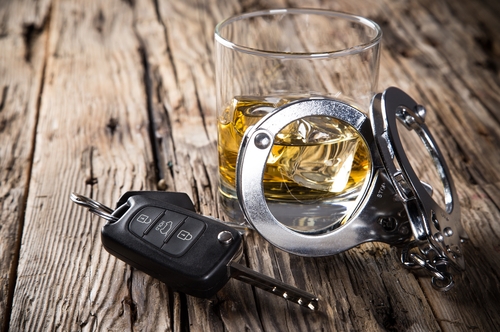
Drunk driving remains a serious concern in Pennsylvania, with devastating consequences for individuals and communities alike. In the ongoing battle against this dangerous behavior, the state's dram shop laws play a crucial role. These laws hold establishments and private parties accountable for their role in serving alcohol to individuals who later cause accidents while intoxicated. In this article, we will explore Pennsylvania's dram shop law, its implications for establishments and private parties, signs of intoxication, how to "cut off" an obviously intoxicated person, and what to do if you are injured by a drunk driver.
Pennsylvania’s Dram Shop Law Explained:
Pennsylvania's dram shop law holds establishments and private individuals liable for serving alcohol to visibly intoxicated individuals or those who are under 21 years old, and who later cause harm to themselves or others. The law recognizes that those who provide alcohol have a responsibility to ensure it is consumed responsibly. If an establishment or individual fails in this duty and an intoxicated person causes harm, the injured party may seek compensation through a personal injury claim.
Dram Shop Law for Establishments:
Under Pennsylvania law, establishments such as bars, restaurants, and clubs can be held accountable if they serve alcohol to someone who is visibly intoxicated or underage and that person goes on to cause injury or harm to themselves or others. Establishments have a legal obligation to ensure the responsible service of alcohol and are required to exercise reasonable care in assessing the sobriety of their patrons.
Dram Shop Law for Private Parties:
Pennsylvania's Dram Shop Law extends beyond commercial establishments to include private individuals and hosts who serve alcohol to guests at social gatherings. If a host knowingly provides alcohol to a visibly intoxicated guest or an individual under the legal drinking age, and that person causes injury or harm to themselves or others due to their intoxication, the host may be held liable. This provision serves as a reminder that everyone has a responsibility to ensure the responsible consumption of alcohol, even in social settings.
Signs of Intoxication:
Identifying signs of intoxication is crucial for both establishments and private parties to prevent over-serving. Some common signs of intoxication include:
- Slurred speech and difficulty articulating thoughts.
- Unsteady gait and impaired coordination.
- Bloodshot or glassy eyes.
- The strong smell of alcohol on the breath.
- Loud or boisterous behavior.
- Inappropriate or aggressive actions.
- Excessive drinking within a short period.
- Difficulty maintaining balance or focusing attention.
How To "Cut Someone Off":
When an individual is visibly intoxicated, it is the responsibility of alcohol-serving establishments and hosts to act responsibly, intervene, and prevent further alcohol consumption. The following steps can be taken to "cut off" someone who is obviously intoxicated:
1. Remain calm and composed while addressing the situation.
2. Politely inform the individual that you are concerned for their safety and the safety of others.
3. Offer non-alcoholic alternatives such as water, soda, or coffee.
4. Avoid arguing or engaging in confrontations with the intoxicated person.
5. If necessary, seek assistance from security personnel or management.
6. Offer alternative transportation options such as calling a taxi, arranging a ride-sharing service, or providing a designated driver to ensure the intoxicated person gets home safely.
What To Do If Injured By A Drunk Driver:
If you have been injured in an accident caused by a drunk driver in Pennsylvania, it is important to take the following steps:
1. Seek medical attention for yourself and anyone else injured in the accident.
2. Contact the police and ensure they file a report.
3. Gather information about the drunk driver, including their name, contact details, and insurance information.
4. Document the accident scene, take photos, and gather any available evidence.
5. Reach out to a personal injury attorney with experience in drunk driving cases to evaluate your options and guide you through the legal process.
6. Cooperate with law enforcement and provide any necessary statements or testimony.
7. Preserve all medical records, bills, and other relevant documents to support the claim for compensation.
Key Takeaway:
Pennsylvania's dram shop laws serve as an important deterrent against drunk driving by holding both establishments and private individuals accountable for their actions. By understanding the signs of intoxication, establishments and hosts can help prevent alcohol-related accidents. If you are injured by a drunk driver, it is essential to consult with an experienced personal injury attorney to protect your rights and pursue compensation for your damages. Together, through awareness, responsible service, and legal action, we can continue the fight against drunk driving in Pennsylvania and work towards safer roads for all.
Contact van der Veen, Hartshorn, Levin & Lindheim Today For a Free Consultation About Your Drunk Driving Injury
If you or a loved one have been injured by a drunk driver, you don't have to face the legal complexities alone. At van der Veen, Hartshorn, Levin & Lindheim, we are dedicated to fighting for the rights of those who have suffered due to the negligence of drunk drivers. Our experienced team of attorneys understands the devastating impact these accidents can have on individuals and families, and we are here to provide compassionate support and aggressive representation.
With our deep understanding of Pennsylvania's dram shop laws and extensive knowledge of personal injury litigation, we have successfully helped numerous clients obtain the compensation they deserve. We will thoroughly investigate your case, gather evidence, and build a strong legal strategy to hold the responsible parties accountable.
Don't let the financial burden of medical bills, lost wages, and emotional distress overwhelm you. Contact us today for a free consultation. Our dedicated team is available to discuss your case, answer your questions, and provide the guidance you need to move forward. Remember, time is of the essence in personal injury cases, so don't delay seeking the justice and compensation you deserve.
